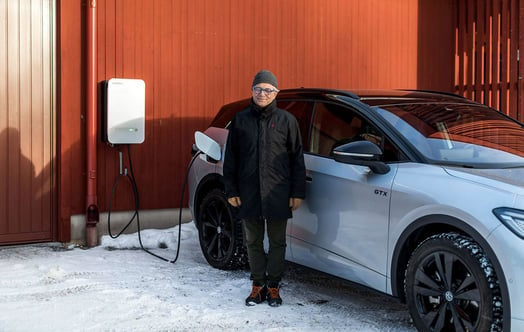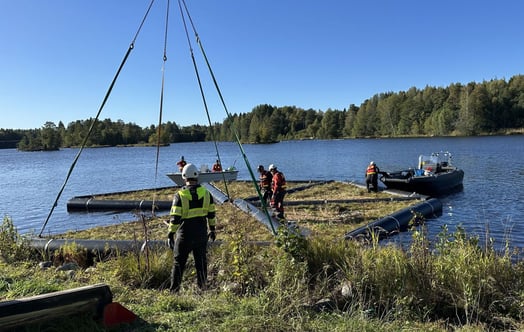At the forefront: field trial on blockchain technology
New data-fingerprint technology saves money and enables also small energy producers to buy and sell their power.

Vattenfall’s Business Area Markets and 22 other European energy trading firms have joined forces in order to conduct peer-to-peer trading in the wholesale energy market using blockchain technology.
“Blockchain is widely seen as one of the most interesting and  disruptive technologies for the coming years, with Bitcoin as the best-known example of a cryptocurrency based on this technology. With Blockchain, one party can tradepass a good such as money, securely withto another party without a third party intermediary involved, such as a bank,” says Christian Tobias, Solution Architect at BA Markets. In this case, it means that Vattenfall and other trading firms can buy and sell energy without going through a centralized energy market place, thus saving money.
disruptive technologies for the coming years, with Bitcoin as the best-known example of a cryptocurrency based on this technology. With Blockchain, one party can tradepass a good such as money, securely withto another party without a third party intermediary involved, such as a bank,” says Christian Tobias, Solution Architect at BA Markets. In this case, it means that Vattenfall and other trading firms can buy and sell energy without going through a centralized energy market place, thus saving money.
During the proof of concept, Vattenfall will learn more about the blockchain technology and find out whether a decentralised solution can match existing trading platforms when it comes to trading volumes and transactional speed, but at a lower cost.
Today, BA Markets trades either via energy exchanges or directly with counterparts through brokers and broker platforms.

Kilian Leykam, Manager Business Development Trading.
“On average, we enter into 1,400 deals per day across all energy commodities and markets,” says Kilian Leykam, Manager Business Development Trading. “Each deal causes transaction costs and has to be processed in our trading, reporting and controlling systems. Once we are able to apply blockchain technology in energy markets, we will be able to operate more efficiently and at lower transaction costs.”
By lowering transaction costs blockchain technology will also enable the trading of small scale decentralised production and consumption, for example private homes with solar panels. In this way the technology has the potential to be a key puzzle piece of the new energy landscape.
The trial is hosted by Ponton, a company based in Hamburg. Their software allows trading organisations, using encryption technology, to anonymously send orders to a decentralised order book. All this is done “peer-to-peer”, that is without a central marketplace operated by an exchange or broker.
The proof of concept will run until the end of 2017. A crucial phase of the project will be towards the end of the year, when participants intend to start live trading on the blockchain. If successful, this would be the first blockchain-based peer-to-peer trading system for wholesale energy products going live.



